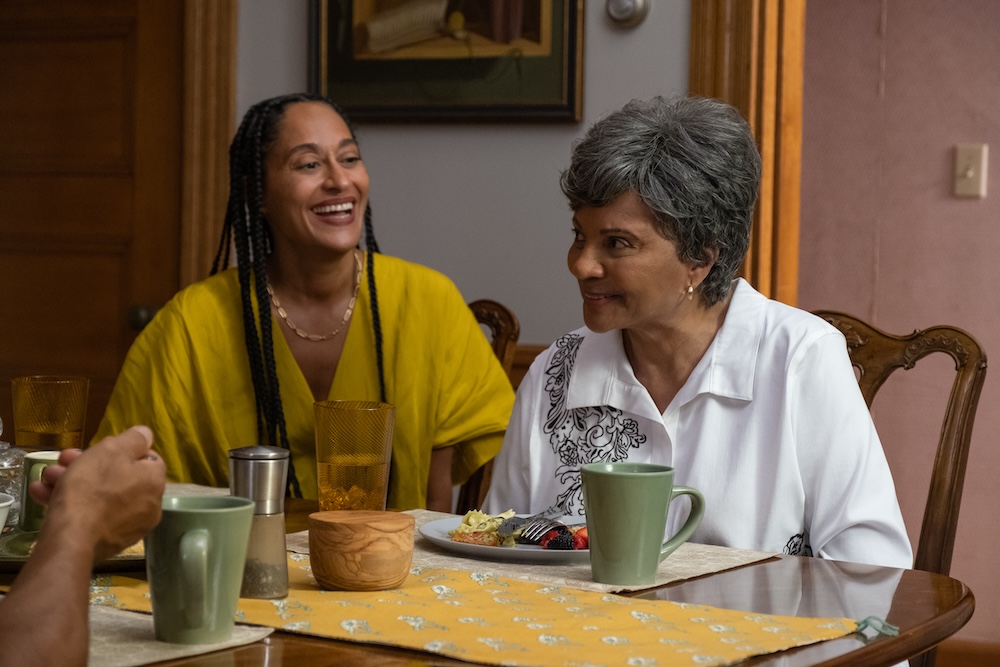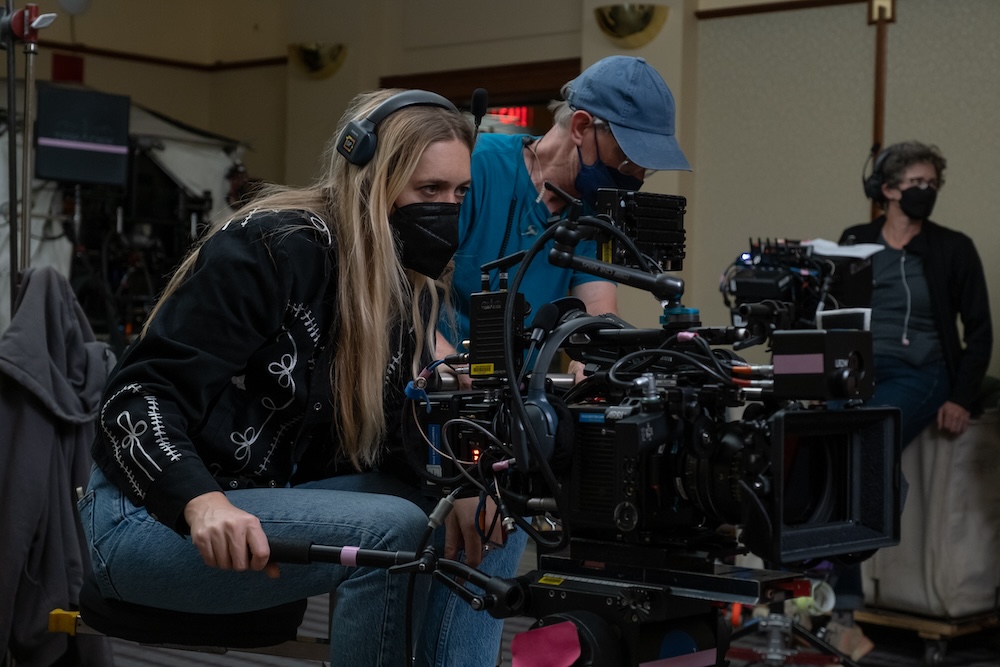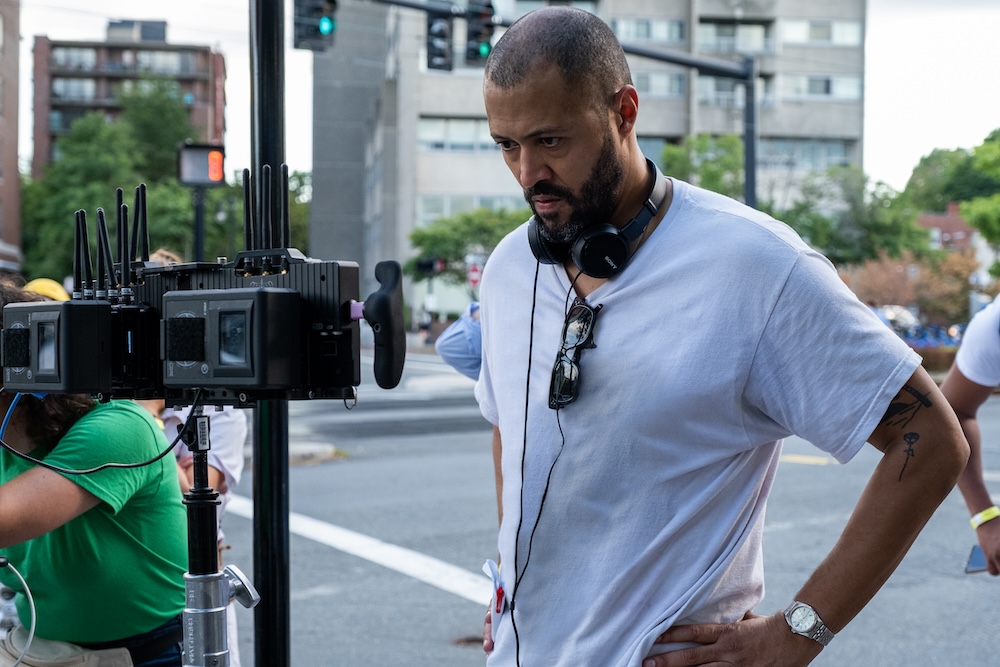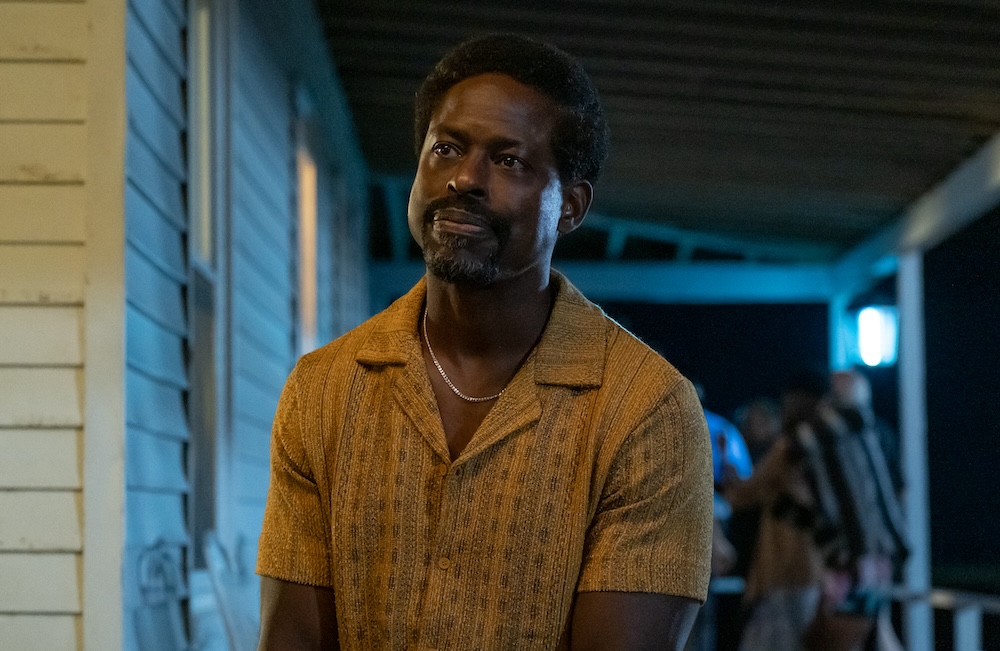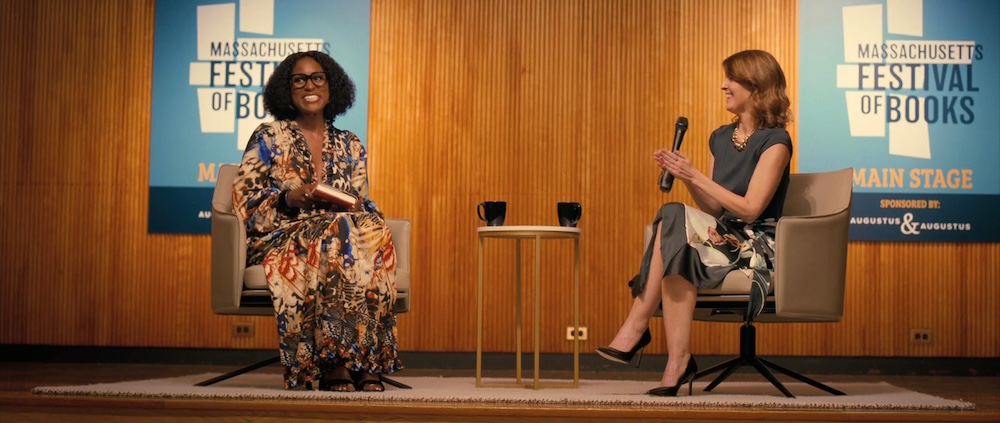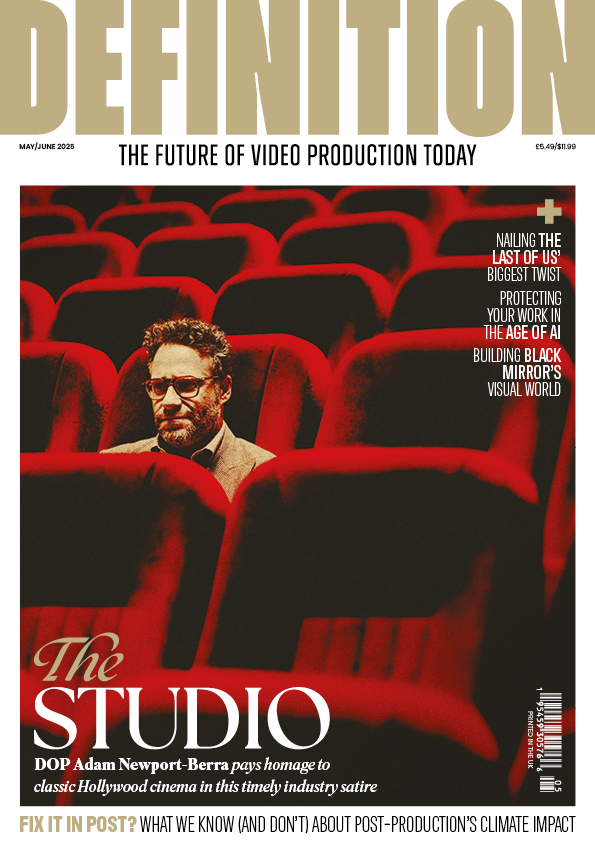
American Fiction
Posted on Feb 13, 2024
Cristina Dunlap catches the tonal shifts in American Fiction, Cord Jefferson’s stinging riposte to Hollywood
Words Adrian Pennington
In the mode of Mel Brooks’ The Producers, the struggling author at the centre of American Fiction writes a book so deliberately full of Black stereotypes that he is aghast when it actually goes viral. Writer and director Cord Jefferson’s withering satire skewers the hypocrisy and myopia at the centre of Hollywood’s reaction to movements like #BlackLivesMatter and #OscarsSoWhite by highlighting how the industry limits Black storytelling to narratives of poverty and violence.
“Nobody is safe,” announces cinematographer Cristina Dunlap of the film’s targets. “It pokes fun at everybody and leaves room for them to identify with it. We all expected it might take a while for people to know it’s okay to laugh, but it’s been great to see audiences cracking up from the beginning.”
Dunlap’s credits include 2022 festival hits Cha Cha Real Smooth and Am I OK? starring Dakota Johnson, as well as music videos for Lizzo, Coldplay and Katy Perry. Most recently, she worked with Taylor Swift and her creative director Ethan Tobman to film all the on-stage visuals for the Eras Tour. A mutual connection on one of those promos helped land her the gig for Jefferson’s adaptation of Percival Everett’s 2001 novel Erasure.
“I thought Cord’s screenplay was brilliant and wanted to know where it came from,” Dunlap says. “I read the book, then when I was interviewing gaffers and dolly grips, almost every single one read it too. We had this little book club going on-set.”
Jefferson, a writer on shows including Succession, makes his feature debut with American Fiction. Dunlap continues: “I pitched ideas but left it open for him to develop his directing style and see how he felt about going in one direction.”
The biggest issue he wanted to nail was tone. “He didn’t want the film to turn farcical. We discussed how to keep it grounded and relatable without becoming too melodramatic or comedic, but to live in that sweet spot.”
To achieve that visually, the DOP decided not to shoot it like a traditional comedy, “in wide shots where you’re letting scenes play out.” She explains: “We worked on orchestrating specific shots with Steadicam that would sort of weave through all the characters. Shooting in the 2.35 aspect ratio allowed us to create those moves and hold everyone in frame – or to move everyone while remaining close enough to register emotionally what is going on.”
The tonal register changes scene by scene between satire, romantic comedy and character study all combined with thoughtful family drama. “It is never strictly one or the other, always a combination of emotions in each character,” she remarks.
The Descendants was a key tonal text, although Alexander Payne’s 2011 movie “is more naturalistic than our film,” she says. There were also flights of surrealism to consider. One such moment from the middle of the film has Thelonious ‘Monk’ Ellison (played by Jeffrey Wright) beginning to write his book, in a scene that’s revisited at the end in a far more left-field way.
“The original idea had been to shoot the scene in an alleyway and let the scene play out. For budgetary and creative reasons, we ended up dialling it back. We still wanted it to feel like a departure from the rest of the film, but not a complete record scratch. This is so it wasn’t a complete shock to people at the end when the film takes that turn.”
With only 26 days allocated for photography, they made the most of an ample eight weeks in pre-production. Dunlap, Jefferson, production designer Jonathan Guggenheim and the film’s producers spent much of that time in a minivan touring Boston for locations.
“Cord and I discussed the blocking we imagined in each space. If we loved the location but it needed adapting, then Jonathan stepped in to work on it. From there, I storyboarded several scenes using Artemis Pro.”
The film’s budget, reportedly $20-25 million, didn’t allow time for multiple setups, but Dunlap turned the restriction to her advantage. “I knew early on we wouldn’t have a ton of coverage. Often, that can lead to a more interesting film. Force Majeure [Ruben Östlund’s caustic 2014 drama] is one my favourites, where DOP Fredrik Wenzel often held one shot for an entire scene. You’re looking at someone’s back for half of it, but the emotion is still conveyed. Cord and I took a lot of time to plan those angles and how we wanted the emotion of a scene to come across. That meant using Steadicam in a constantly moving coverage.”
Some scenes were curtailed or cut from the final edit to achieve the right tonal balance. This included a longer version of the scene in which Monk and a book publisher discuss calling his book FUCK [a working title for the film], and another when Monk breaks down in a coffee shop after the death of his sister.
“While such a beautiful scene, it was taking the movie too far in one direction. They also had to cut some of the funniest moments because it would have gone too over the top,” Dunlap says. “In terms of camera, I tried to be cognisant of not pushing it too far one way until the story called for it. Most of the film is drama, then the end of the film is an OTT rom com and action film. We did this to have a variety and add that extra punch to the ending.”
Her camera package was a single ALEXA Mini LF using BLACKWING7 TRIBE7 primes, choosing spherical to have audiences ‘fall into the story’ and not be distracted by the flares and distortions of anamorphic. The same light-touch philosophy fed her approach to lighting. “Generally, I didn’t want it to feel overly lit. There are some moments we try to make it a little more crafted though.”
For a post-wedding scene, they planned to bathe characters in a blue light matched against the blue sky. “It got a little darker than we wanted by the time we were shooting, but we still hung blue lights around the porch to create the look. In Monk’s office, there is some more surrealist lighting. In a dramatic restaurant scene, we placed CRLS mirrors on top of the window to bang in this very hard light and cast a shaft of light onto the table.”
Picture grading was done by Phil Beckner at Fotokem, who sent Dunlap a selection of LUTs before shooting. This was so that the task in post was to hone and not build the colour. She leant on the work of photographer Deana Lawson in order to capture skin tone effectively. A drone scene at the end of the film was something she plucked from Silver Linings Playbook, while another scene references Malcolm X [1992]. “We were all over the map because the film has so many elements to it,” she says.
In perhaps a cinematic first, they also drew inspiration from a GIF. “When I first met with Cord, he showed me a GIF of [former NBA basketball player] David Robinson sitting on a bench. He had a camera trained full on his face showing his reaction on the court. Then, a white woman completely blocks his line of sight. Jefferson said this was a metaphor for the film. He didn’t intend it as a shot reference, but when we were blocking the scene at a public reading of his book – with Monk facing everything he is up against – it seemed like the perfect place to show that visually.”
The film premiered at Toronto International Film Festival, earning the People’s Choice Award, and also picked up two Golden Globe nominations. “I’m waiting to see what happens and what opportunities it brings,” concludes Dunlap. “We’re all very proud of it.”
This article appears in our February issue. Read the full magazine here.

